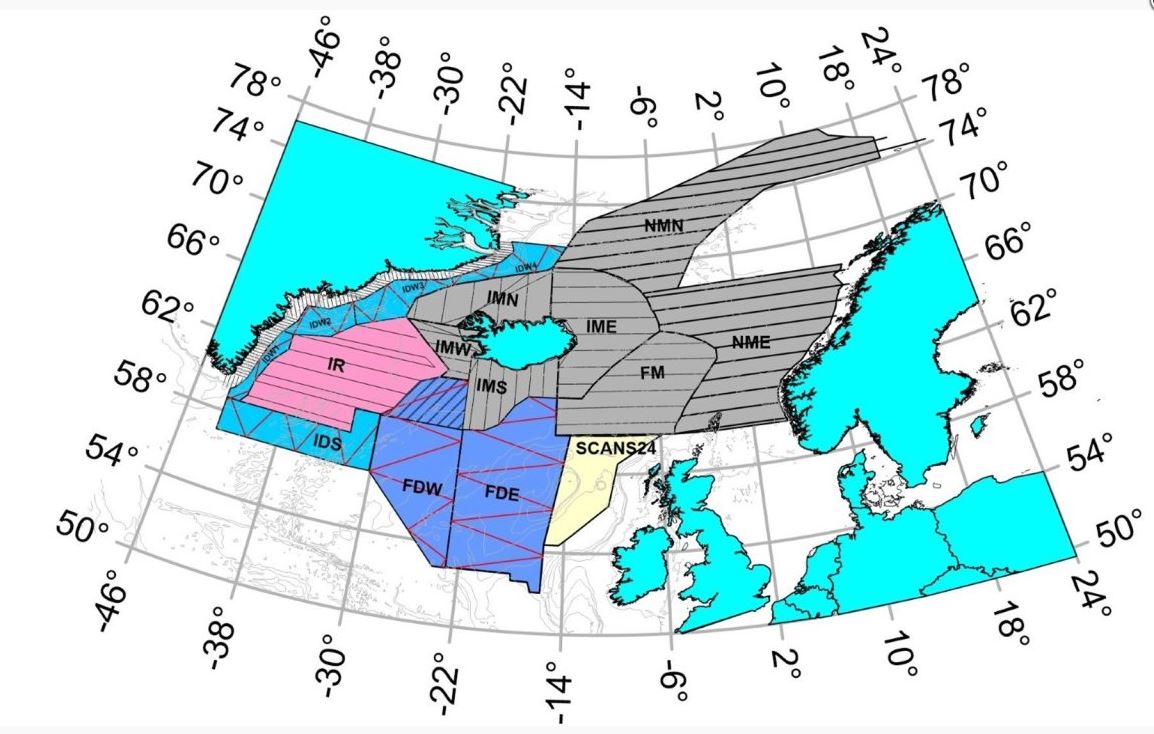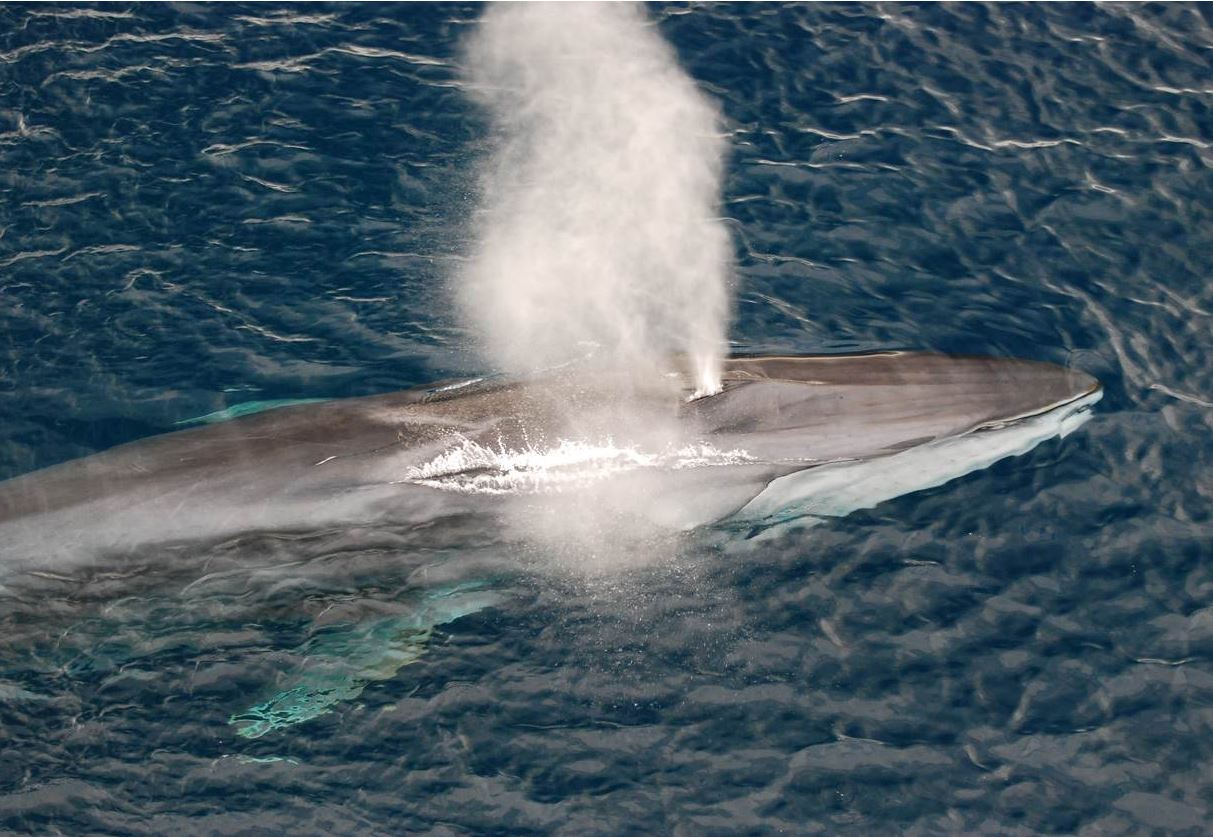In a recent cabinet meeting, Iceland's Minister of Food, Agriculture, and Fisheries, Bjarkey Olsen Gunnarsdóttir, In a recent cabinet meeting, Iceland's Minister of Food, Agriculture, and Fisheries, Bjarkey Olsen Gunnarsdóttir, announced the decision to allow whaling this summer. The Minister clarified that this decision does not necessarily reflect her personal views or those of her party.
"Nevertheless, I must adhere to the existing laws and regulations, and this is the conclusion I've reached," stated Bjarkey Olsen Gunnarsdóttir.
The regulations for this year's whaling season remain unchanged from last year, following the stricter measures implemented by former Minister Svandís Svavarsdóttir. Other than these, no additional restrictions have been imposed on the license conditions.
When questioned about the potential for a future ban on whaling given her personal opposition to it, Minister Gunnarsdóttir responded that her ministry is actively working on a whaling strategy. Any amendments to the whaling laws, however, would require parliamentary approval.
"I believe we need a national dialogue to determine if we truly want to continue this practice. It is a conversation we need to have," she added.
The Icelandic Food and Veterinary Authority (MAST) has proposed further tightening the conditions for whaling. While these suggestions are currently under review by the ministry, they do not impact the issuance of this year's license.
The newly issued license for whaling is valid only for the current year. The previous permit for whaling was valid for five years. Hvalur hf., the commercial whaling company, requested a renewal of its whaling license on January 30th, and the application is now being processed, nearly four and a half months later—a delay that has drawn significant criticism.
The license permits the hunting of 128 animals for the 2024 season: 99 in the Greenland/West Iceland region and 29 in the East Iceland/Faroe Islands region. According to the Cabinet's website, this decision aligns with the Marine & Freshwater Research Institute's 2017 recommendations and considers the International Whaling Commission's conservative ecosystem factors.
More People Oppose Whaling Than Support It, According to a survey from 2023.
A survey conducted August 2023 by Maskína for the Iceland Nature Conservation Association reveals that 42% of respondents are against whaling, while 29% are in favor. Opposition to whaling has increased since the last survey. In May of 2022, 35% supported the hunt, while 33% opposed it.
The survey also highlights significant differences in attitudes based on gender and age. Only 19% of women support whaling compared to 38% of men. Men's support has decreased from 48% in the last survey. Age-wise, only 15% of people aged 18-29 support hunting, while 47% of those aged 60 and over are in favor.
Political views also influence attitudes toward whaling. Voters of the Independence Party, the Progressive Party, the People's Party, and the Central Party show more support than opposition to hunting, while a minority of voters from other parties support it.
The survey was conducted from August 17th to 22nd 2023 and was submitted to participants in Þjóðgátt Maskína, a nationally representative panel group consisting of Icelanders aged 18 years and older randomly selected from the Icelandic national registry. A total of 1,078 people responded to the survey.
Summer Whale Counts Begin
At the beginning of the summer, extensive whale counts commenced off the coast as the research ship Árni Friðriksson set sail from Hafnarfjörður fjord. These counts are part of the North Atlantic Sighting Survey (NASS), which has been conducted regularly since 1987. This summer's survey marks the seventh in the series.
In addition to Iceland, Norway, the Faroe Islands, and Greenland participate in the count. Canada and Scotland also conduct similar counts during this period.
Initially, the goal of these counts was to estimate the population sizes of commercial species: fin whales and minke whales off Iceland, pilot whales off the Faroe Islands, minke whales off Norway, and humpback whales and minke whales off Greenland. Recently, the focus has broadened, providing essential information about whale communities and forming the basis for many scientific articles on various topics such as changes in distribution and population sizes.
The counts are organized by the North Atlantic Marine Mammal Commission (NAMMCO), with participation from all involved nations. The methodology is reviewed by external experts, making these counts one of the most comprehensive animal surveys worldwide due to the extensive counting area.

Each ship has eight whale enumerators working in 2-hour rotating shifts, counting on two platforms per ship. According to Sverri Daníel Halldórsson, head of the whale counting expedition on board the Árni Friðriksson, the counts got off to a good start despite the winter weather affecting the country. The weather improved in the counting area, where fin whales, humpback whales, minke whales, and puffins were sighted.
The tags below provide an opportunity to view previously posted related news within the selected category

